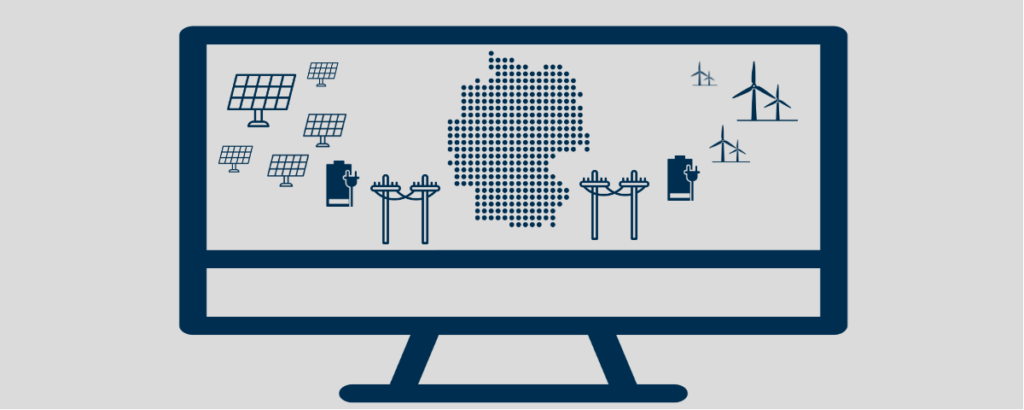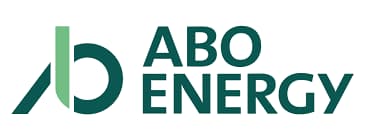EiBeLePo – Optimization of site selection for renewable energies

Project description
In the project EiBeLePo, RLI scientists are determining connection potentials for wind and solar parks as well as energy storage systems for the Berlin-based project development company ABO Wind. For this purpose, RLI provides the company with open data on the German power grid. With this data and a load flow analyses, the researchers simulate the connection possibilities of wind and solar parks – this way they identify free grid capacities in the extra-high-voltage and high-voltage grid for the feed-in of renewable energies as well as for the connection of storage facilities.
Methodological approach
From a methodological point of view, the scientists determine the possible additional feed-in capacities and loads at various points in the German power grid. In order to determine the feed-in capacity, they look at the so-called regenerative case. This is the situation in the power grid, where the feed-in from fluctuating renewable energies is particularly high and the load is low. In order to determine the free grid capacities for renewable energies, they continuously increase the feed-in power at each grid node until grid problems such as line overloads and voltage band violations occur. The possible additional load is determined analogously in the case of heavy load. In this case, the load is particularly high and there is no feed-in from fluctuating renewable energies. Finally, the results are converted into traffic light phases, which makes it easy to see connection probabilities per substation and grid node.
Validation and use of results
The researchers validate the results by comparing the simulation data with real data from network operators. This allows conclusions to be drawn about the quality of the existing data sets and the simulation methodology. In workshops, they instruct people from ABO Wind on how to use the network tools and data used . This way ABO Wind employees can ultimately work independently with the data and interpret it correctly.
Project period: May 2023 – July 2023
Tasks
- Creation of a data set “basic data”, consisting of data on generation, consumption and network infrastructure.
- Execution of simulations with increased feed-in and load at grid nodes and load flow analyses to identify limit value violations and connection potentials.
- Preparation of the simulation results for the data set “Simulation data” as well as creation of suitable accompanying documents.
- Support in the validation of simulation data based on real network operator data.
- Conducting workshops and individual lessons to familiarize yourself with the open network tools and network data.
- Consultations and other arrangements within the framework of the project.


